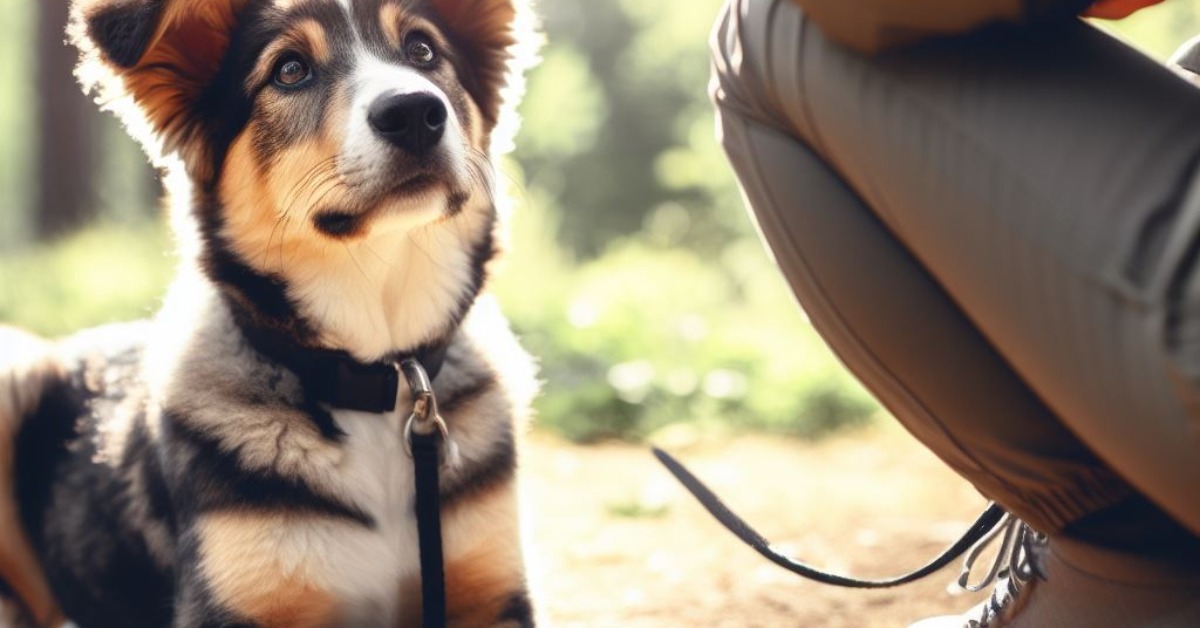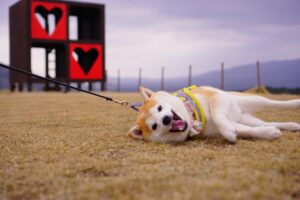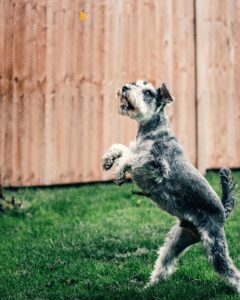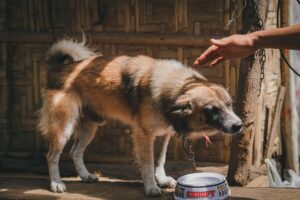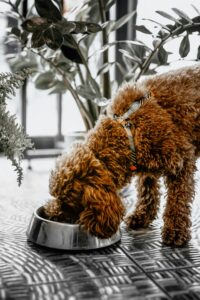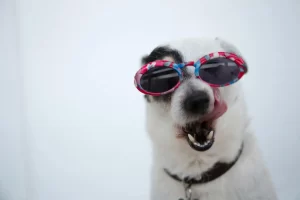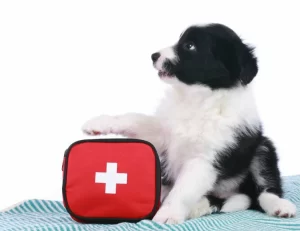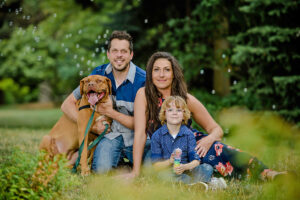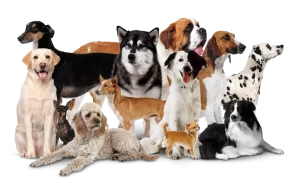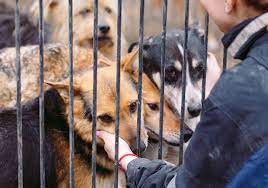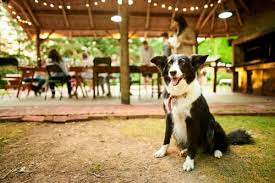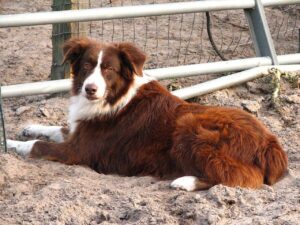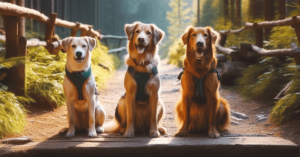If you have a guardian breed dog, such as a Tibetan mastiff, a Caucasian shepherd, or a Doberman pinscher, you may wonder how to train and care for them properly. Guardian dogs are bred to protect their owners, their territory, and their livestock from predators and intruders. They are loyal, courageous, and independent, but they also need proper socialization, training, and health care to thrive as family pets. Here are some tips on how to train and care for your guardian breed dog.
Table of Contents
ToggleSocialize your dog from an early age
Guardian dogs are naturally wary of strangers and other animals, so it is important to expose them to different people, places, and situations from an early age. This will help them learn to distinguish between friendly and threatening stimuli, and prevent them from becoming overly aggressive or fearful. Socialization should start as soon as you bring your puppy home, and continue throughout their life. You can socialize your dog by:
- Taking them to puppy classes, dog parks, and pet-friendly stores
- Inviting friends and family over to meet your dog and give them treats
- Introducing them to other dogs and animals in a controlled and positive way
- Rewarding them for calm and polite behavior around new people and animals
Train your dog with positive reinforcement
Guardian dogs are intelligent and responsive, but they can also be stubborn and dominant. They need a consistent and firm leader who can teach them the rules and boundaries of the household. To train your dog effectively, you should use positive reinforcement, which means rewarding them for good behavior and ignoring or redirecting bad behavior. You should avoid using harsh or punitive methods, such as yelling, hitting, or alpha rolls, as they can damage your dog’s trust and confidence, and make them more aggressive or fearful. To train your dog with positive reinforcement, you should:
- Teach them basic commands, such as sit, stay, come, and leave it
- Use a clicker or a marker word, such as “yes” or “good”, to mark the exact moment your dog does what you want
- Give them a treat, a toy, or praise as a reward for following your command
- Repeat the command and reward several times until your dog learns the association
- Gradually increase the difficulty and duration of the command, and reduce the frequency of the reward
- Practice the command in different settings and with different distractions
Provide your dog with enough exercise and mental stimulation
Guardian dogs are active and energetic, and they need plenty of exercise and mental stimulation to keep them healthy and happy. Without enough physical and mental activity, they can become bored, frustrated, and destructive. They can also develop behavioral problems, such as barking, digging, chewing, or escaping. To provide your dog with enough exercise and mental stimulation, you should:
- Walk them at least twice a day for 30 to 60 minutes each time
- Play with them using interactive toys, such as tug-of-war, fetch, or puzzle toys
- Enroll them in dog sports, such as agility, obedience, or tracking
- Challenge them with training games, such as hide-and-seek, nose work, or trick training
- Rotate their toys and activities to keep them interested and engaged
Groom your dog regularly
Guardian dogs have thick and long coats that need regular grooming to keep them clean and healthy. Their coats can also shed heavily, especially during seasonal changes, so they need frequent brushing to remove loose hair and prevent mats and tangles. Grooming your dog also gives you a chance to check their skin, ears, eyes, teeth, and nails for any signs of problems. To groom your dog properly, you should:
- Brush them at least once a week, or more often if they have a long or curly coat
- Use a slicker brush, a pin brush, or a rake to remove dead hair and dirt
- Use a metal comb or a detangling spray to remove mats and tangles
- Trim their nails every few weeks, or as needed, using a nail clipper or a grinder
- Check their ears weekly, and clean them with a cotton ball and a dog ear cleaner if they are dirty or smelly
- Check their eyes daily, and wipe them with a damp cloth or a dog eye wipe if they are crusty or watery
- Brush their teeth daily, or at least a few times a week, using a dog toothbrush and a dog toothpaste
Feed your dog a balanced and nutritious diet
Guardian dogs need a balanced and nutritious diet to support their growth, development, and health. They also need a diet that is appropriate for their size, age, activity level, and health condition. You should consult your veterinarian for the best food recommendations for your dog, and follow the feeding instructions on the food package. You should also avoid giving your dog too many treats or human food, as they can cause weight gain or health problems. To feed your dog a balanced and nutritious diet, you should:
- Choose a high-quality dog food that contains meat as the first ingredient, and avoid foods that contain meat by-products, grains, or artificial additives
- Measure your dog’s food portions, and feed them twice a day, or as directed by your veterinarian
- Provide your dog with fresh and clean water at all times, and change it daily
- Monitor your dog’s weight and body condition, and adjust their food intake accordingly
- Supplement your dog’s diet with omega-3 fatty acids, glucosamine, or probiotics, if recommended by your veterinarian
Visit your veterinarian regularly
Guardian dogs need regular veterinary care to prevent, diagnose, and treat any health issues. They also need routine vaccinations, parasite prevention, and spaying or neutering to protect them from infectious diseases, parasites, and unwanted pregnancies. You should visit your veterinarian at least once a year for a wellness exam, and more often if your dog is sick, injured, or elderly. You should also have an emergency plan in place in case your dog needs urgent care. To visit your veterinarian regularly, you should:
- Schedule an appointment in advance, and bring your dog’s medical records and any questions you have
- Keep your dog calm and comfortable during the visit, and reward them for good behavior
- Follow your veterinarian’s advice and recommendations, and give your dog any medications or treatments as prescribed
- Get pet insurance to help cover the costs of veterinary care, especially for emergencies or chronic conditions
Conclusion
Guardian dogs are wonderful companions, but they also require special care and attention. By following these tips, you can train and care for your guardian breed dog in the best way possible, and enjoy a long and happy relationship with them. Remember, your dog is not just a pet, but a member of your family, and they deserve your love and respect.

